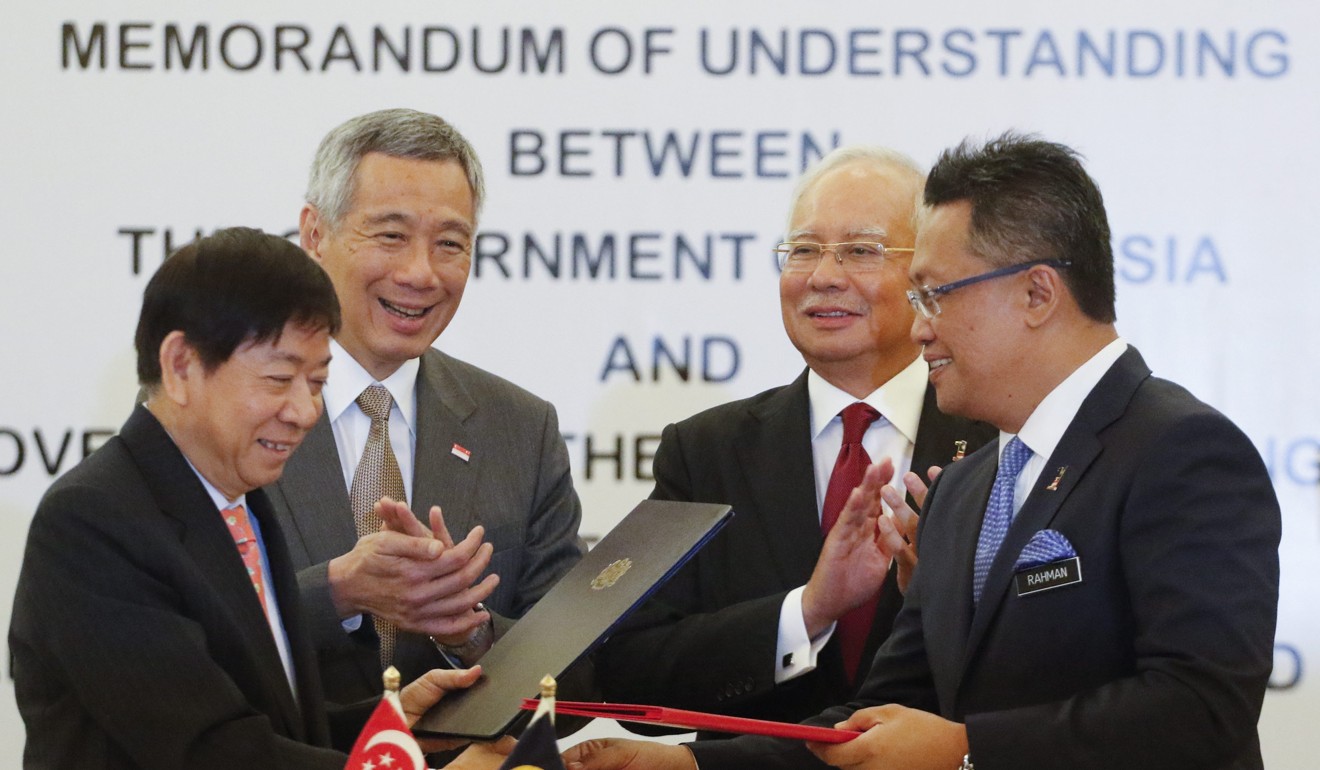
KL-Singapore high-speed rail link hit buffers over US$25 billion bill: Malaysian Finance Minister Lim Guan Eng
“Is it worth it? You can get something for cheaper, for half the price,” says Malaysia’s new Finance Minister Lim Guan Eng of decision to cancel the project
Malaysian Finance Minister Lim Guan Eng has said the government’s decision this week to scrap a high-speed rail project between Kuala Lumpur and Singapore came down to the prohibitively high cost burden his country would be saddled with to maintain the 350km link in the longer term.
In an interview on Thursday with This Week in Asia, Lim said the new administration estimated the initial cost of the high-speed rail project was likely to be more than 100 billion ringgit (US$25 billion) but more vexing were the other costs down the road.
“The backloading is very high … availability payments, maintenance charges, and also asset replacement charges – these are all backloaded,” Lim said.
He added: “The cap-ex [capital expenditure] is expensive, that’s one thing. We feel it’s above cost. But the other aspect is maintenance charges, which we are responsible for.”

When the deal was inked in December 2016, Najib also said the rail link with Singapore would give both neighbours – who have had a fractious history – “a big stake in keeping the relationship stable and warm.”
Asked if the economic benefits outweighed the cost of the rail link, Lim replied: “Is it worth it? You can get something for cheaper, for half the price.”
Malaysian finance minister Lim Guan Eng’s ‘belt-tightening’ plan for 1 trillion-ringgit debt
“What we are seeing are projects that are double the market price,” Lim said. He was referring to various Najib-era infrastructure projects that are under review by the Mahathir administration.
The rail link was to have been designed, built, financed, operated and maintained by a private company jointly appointed by the two countries by open tender in the third quarter of 2019.
Singapore had already acquired two country clubs to make way for the rail link.
While the rail company was to have been a private entity, Lim took issue with the “financial infrastructure of the project”.

He cited the need for the two governments to give guarantees for “availability” fees – where payments are made for service or performance regardless of demand – as well as maintenance costs.
Like Mahathir, Lim emphasised further steps to formalise the cancellation would happen only after negotiations with Singapore.
The city state has not commented since Mahathir’s statement on Wednesday confirming the cancellation, with the Ministry of Transport saying it awaited formal notice. Mahathir said he believed Malaysia was liable to pay 500 million ringgit in compensation to Singapore for shelving the project.
Robert Kuok part of Malaysian PM Mahathir Mohamad’s plans for strong ties with China
Malaysian government sources told This Week in Asia the new administration’s unilateral decision had caused consternation among their Singaporean counterparts and there would likely be protracted negotiations.
Lim would only say he hoped the southern neighbour would understand Malaysia’s need to balance its books, adding: “Singaporeans go by the contract, so we need to talk to them and discuss with them.”

